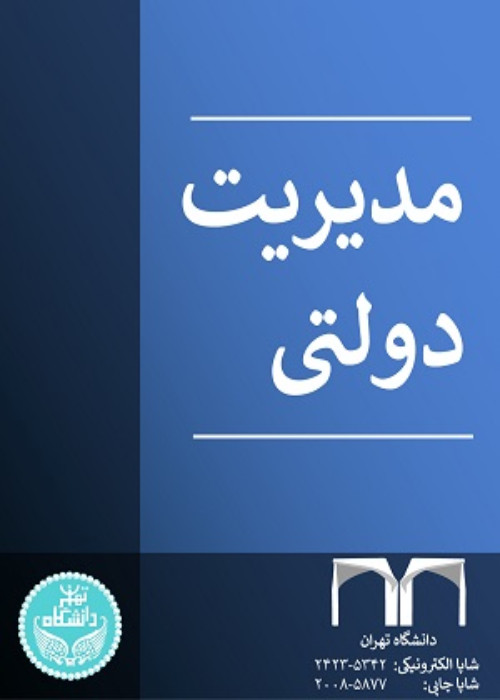Modeling the Factors Affecting the Work-family Conflict and its Indexes Using the Comprehensive Fuzzy Interpretive Structural Model
The present study aims to detect the factors affecting work-family conflict and its indexes and also to interpret their relationship to identify the related topic and measures, including goal setting, planning, decision-making, taking preventive measures, and countermeasures for bank employees and managers.
This research is mixed. In its qualitative part, the meta-synthesis method was applied and in the quantitative part, the comprehensive fuzzy interpretive structural model was used. In the qualitative part 3,204 pieces of research, conducted on work-family conflict, were reviewed, among which 391 articles were selected as the sample. The statistical sample in the quantitative section included all the employees of Bank Melli Iran, Bank Mellat, Bank Pasargad, Shahr Bank, Bank Sepah, Tejarat Bank, Iran Zamin Bank, and Refah Bank located in Lar city. From among them, 22 experts were chosen through nonprobability sampling for they had eight years of work experience and were experts in work-family conflict.
The findings of the qualitative section showed that the factors affecting work-family conflict can be classified into four categories i.e. occupational, family, individual, and environmental factors. Also, the work-family indexes included doubt and caution, stress and anxiety, as well as personality, physical, work, and family problems. The findings of the quantitative part proved a cause-and-effect relationship between the factors affecting work-family conflict. The causes and the indexes were classified into 8 levels. The first level (the most impressible level), included the quality of family life, psychological growth, adaptive behavior, personality depletion, and family problems. On the second level, there were self-regulation inability and physical problems. The third level included the internal control center and spiritual intelligence. The fourth level included enthusiasm for work and organization, the family’s time pressure, family expectations, doubt and caution, stress and anxiety, and work problems. On the fifth level, there were the welfare and supportive work conditions, the supporter’s leadership style, care and nursing, and cultural conditions. The sixth level included work time pressure, conflicts, and work dangers. On the seventh level, there were the background characteristics, the importance of the job position, the dynamic intra-role requirements, the social conditions, and the lack of financial security. On the eighth level (the most influential level), there were job demand stress and human-centered organization design.
On the lowest level, the job demand stress and the human-centered organization design were the most influential. Paying undivided attention to job demands can overestimate the importance of the job and increase the time pressure, conflicts, and dangers of the work. Lack of attention to human-centered organizational design can lead to the use of human resources as tools, influence support in the workplace, and develop feelings of absurdity and nonhumanity in the individuals. If such issues go unnoticed, undesirable incidents may take place, and the family life quality, psychological growth, and adaptive behavior can be harmed. It also may lead the individuals to personality depletion and family problems. Therefore, the managers are recommended to pay attention to all the mentioned issues and the relationship among them since ignoring them can create many problems for the individuals and even the organization.
- حق عضویت دریافتی صرف حمایت از نشریات عضو و نگهداری، تکمیل و توسعه مگیران میشود.
- پرداخت حق اشتراک و دانلود مقالات اجازه بازنشر آن در سایر رسانههای چاپی و دیجیتال را به کاربر نمیدهد.



